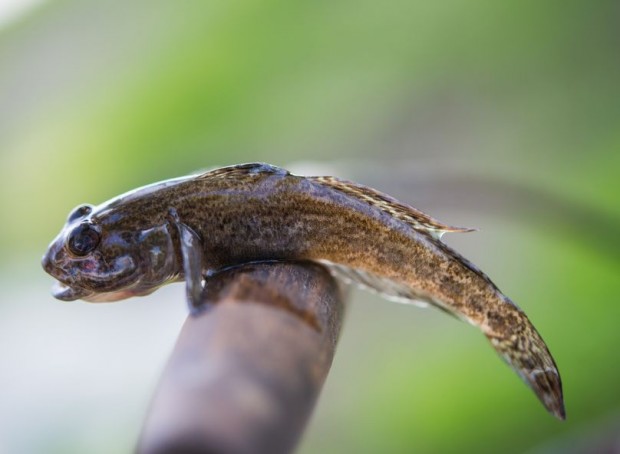BFAR reminds public of ban on eating ‘biya’ after 3 kids died
The Bureau of Fisheries and Aquatic Resources (BFAR) has reminded the public of its ban on fishing, selling and eating goby fish following the deaths of three children who have eaten the poisonous fish in Camarines Norte.
BFAR Region V said it had long permanently banned the fishing, selling and eating of goby fish (horny goby, biya, palo o tambagoy) with scientific name Gobius criniger, and two types of puffer fish (butete) with scientific names Lagocephalus lunaris and Lagocephalus lagocephalus.
The said fishes contain a poisonous substance called tetrodotoxin (TTX), according to BFAR.
“Walang antidote o gamot sa lasong ito. Ang TTX ay mahigit pa ang bisa kaysa sa sodium cyanide kaya lubos na hinihimok ang publiko na huwag kumain ng mga isdang nagtataglay nito (There’s no antidote to TTX. The public is being warned from eating these fishes because TTX is more poisonous than sodium cyanide),” BFAR Region V said in a statement.
BFAR again issued the warning after the deaths of siblings Mark Veejay, 7; John Rommel, 6; and Princess Jessarel, 2, who had eaten the said fish.
Article continues after this advertisementTheir father, Valentino Galeon, 26, who caught the fish in the sea waters of Jose Panganiban, Camarines Norte, on Feb. 9, was confined along with his other five-year-old son at Camarines Norte Provincial Hospital. They were discharged after two days.
Article continues after this advertisementBFAR Bicol spokesperson Nonie P. Enolva told INQUIRER.net that the leftover fish meal tested positive with TTX.
“Our laboratory conducted an analysis of the food sample. Based on laboratory analysis of the submitted leftover food samples by the Regional Health Unit of Camarines Norte to the Marine Biotoxins Monitoring Laboratory, the sample showed positive results for tetrodoxin,” Enolva said in a text message.
According to BFAR, the Philippines and Taiwan have several varieties of goby fish that has varying levels of TTX toxicity.
The goby fish which can be found in the Philippines has high levels of TTX on its skin, fins and head.
The symptoms of poisoning with the said fish include numbness of the lips and tongue, stomach ache, lack of body coordination, chest pain, low blood pressure, unconsciousness, and shortness of breath.
They can be felt five to 30 minutes after eating the said fish.
Enolva said the BFAR Bicol officers visited the family during the wake of the three kids.
“Our office will be providing the family with fiberglass boat and fishing gears as livelihood assistance,” she said. RC
